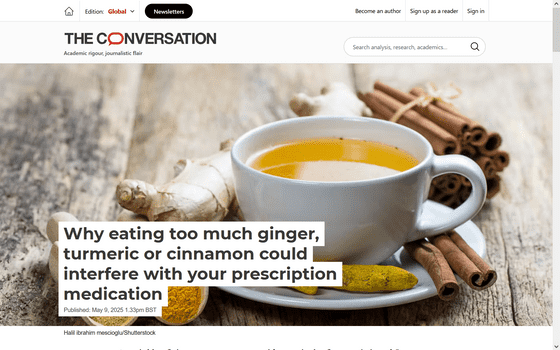Eating too much spices such as ginger, turmeric, and cinnamon can interfere with the effectiveness of your medication.

A new study has found that spices that are essential for flavoring may make certain medications less effective, with
Why eating too much ginger, turmeric or cinnamon could interfere with your prescription medication
https://theconversation.com/why-eating-too-much-ginger-turmeric-or-cinnamon-could-interfere-with-your-prescription-medication-255527

Cinnamon contains compounds such as
Experiments conducted by researchers at the University of Mississippi found that cinnamaldehyde activates receptors that speed up the clearance of drugs from the body. Though the study is still in its early stages and has not been tested in humans, it raises important questions about the possible role of cinnamon in drug effects.

According to Dipa Kamdar, a professor of pharmacology at Kingston University, the type of cinnamon also plays a role in its effectiveness. For example,
Besides cinnamon, there are other spices that pose potential risks. One is turmeric , which contains a compound called curcumin that is said to have anti-inflammatory and antioxidant properties, but may interact with antidepressants, blood pressure medications, chemotherapy drugs, and certain antibiotics. In addition, turmeric has been shown to have a blood pressure lowering effect, and when combined with hypertension medications, it may lower blood pressure too much.
Ginger is also known to have anti-nausea and anti-inflammatory properties, but because it has blood-thinning properties, taking it with anticoagulants may increase the risk of bleeding.
However, Kamdar points out that these effects only pose a risk when taken in large amounts, especially in high doses as a supplement, and that simply sprinkling it on food is unlikely to cause any problems.

'If you're taking medications, especially blood thinners, diabetes or chemotherapy drugs, it's worth checking with your doctor or pharmacist before trying any new herbs or supplements,' Kamdar said. 'But for most people, using spices in general cooking is safe, so by all means, sprinkle, pinch or sprinkle - just be mindful of the medications you may be taking.'
Related Posts:







